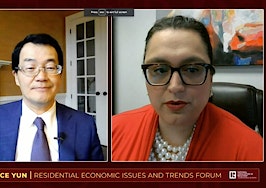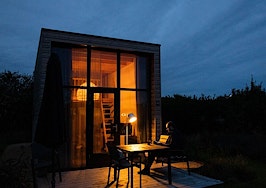Although historically low mortgage rates have made homeownership more affordable for a large swath of buyers, continuing supply constraints and stricter borrowing standards remain major roadblocks for Americans with lower incomes and credit scores. According to study by RealtyHop released Wednesday, these roadblocks have dramatically lengthened homebuyers’ journey to homeownership.
“For many people, it’s just too hard to own when factoring in the monthly commitment, ongoing maintenance, and unexpected expenses, not to mention meeting the 20 percent down payment requirement, which is often considered the worst financial barrier to homeownership,” the report read.

In the analysis of 125 of the nation’s largest metros, Los Angeles, New York City, Glendale, Calif., San Francisco, and Boston fared the worst, with homebuyers needing between 14.8 and 9.7 years to save for a 20 percent down payment on a median-priced home.
In Los Angeles, a buyer making a median income of $67,418 needs 13.8 years to provide a 20 percent down payment on a median-priced home ($929,499). In New York City, buyers with a median income of $69,407 will need 12.8 years to afford a median-priced property ($889,000). Glendale (12.8 years), San Francisco (11.3 years), and Boston (9.7 years) shored up the end of the pack with median-home prices ranging from $769,900 to $1.38 million.
Although homebuyers can offer a down payment as little as 3.5 percent with FHA home loans or local and state down payment assistance programs, RealtyHop noted those aren’t viable options for every buyer as lenders tighten their mortgage requirements in the face of record unemployment and COVID-induced economic distress.
“Of course, for some condo units, the down payment could be as low as 10 percent, but it is becoming less common these days as lenders tighten their mortgage requirements,” the report said of the plight New Yorkers face.

On the other hand, the barrier to homeownership is lower in secondary markets across the Midwest, with homebuyers needing no more than 3.2 years to save a 20 percent down payment.
In Detroit, a homebuyer with a median income of $33,965 only needs 1.6 years to provide a 20 percent down payment on a median-priced home ($55,000). In Akron, which has a homeownership rate of 56.6 percent, homebuyers can provide a down payment on a median-priced home ($99,500) in 2.4 years.
Residents in Aurora, Ill., Des Moines, Wichita, and Cleveland can expect to experience similar timelines, with buyers needing between three and 3.2 years to save a down payment and purchase a home. In addition to low homebuying costs, RealtyHop said buyers will benefit from low annual homeownership costs as well.
“Wichita is considered one of the most affordable cities in the U.S., thanks to its favorable local tax rates and relatively low housing prices,” the report read. ” For any families looking to enter homeownership in Wichita, it takes 3.2 years to save up for a home and afterward a reasonable 19.6 percent of annual income to keep the property, according to the most recent RealtyHop Housing Affordability Index.”
Although it’s unknown when or if lenders will loosen borrower requirements, RealtyHop said homebuyers can give themselves a leg up by saving earlier, improving their credit scores, seizing opportunities to increase their income, and shopping for a mortgage broker.
“Our research has shown that in major cities in the U.S., especially the most populous ones with job opportunities, owning is not easy,” the report concluded. “While you can still get approved even with a credit score of 580 (which is too low for someone who wants to buy a house/apartment), the higher your credit score is, the more likely that you will be approved for a mortgage and enjoy a lower interest rate.”
“While it might seem straightforward to go with the bank offering you the lowest rate, sometimes lower rates, and fees mean poor service and lack of transparency,” it added. “Make sure that you shop around and fully understand the application process and the mortgage products they offer.”













